|
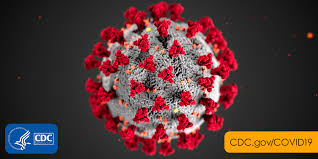 COVID-19 COVID-19
The Coronavirus Preparedness and Response Supplemental Appropriations Act, 2020 (HR 6047) was passed by both houses and signed into law by President Trump last week. This bill funds an $8.3 billion response to the new pandemic including:
- $826 million for developing coronavirus vaccines, treatments and tests
- $300 million to purchase vaccines and treatments once they're approved
- $950 million in grants to states and localities to help the front-line health departments
- $3.1 billion to buy medical supplies.
Plain Language:
- The government is spending emergency money to deal with a new virus.
What this means to you:
- Information about COVID-19 is changing. It is helpful to stay up to date by checking the guidance from the CDC.
Action steps:
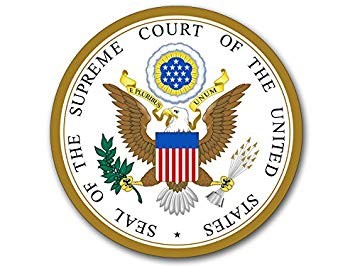 Healthcare Healthcare
The Supreme Court on Monday announced it will take up a case seeking to overturn the Affordable Care Act (ACA). The case will be heard during the court's next term, which starts in October, with a decision not likely until 2021.
Plain Language:
- The government is going to review and decide if the Affordable Care Act is legal.
What this means to you:
- The case threatens the current health care system and could eliminate coverage for roughly 20 million people if the Supreme Court overturns the ACA.
Action steps:
- Share your healthcare stories on social media and with your Members of Congress: United States Capitol switchboard: (202) 224-3121
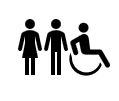 Direct Support Professionals Direct Support Professionals
Last week, Sens. Hassan (D-NH) and Collins (R-ME) and Reps. Rice, Sean Maloney, Peter King, Katko, Fitzpatrick, and Boyle introduced legislation to create a standard occupational code for direct support professionals (DSPs), Recognizing the Role of Direct Support Professionals Act (HR 6045, S 3369). It tells the Bureau of Labor Statistics (BLS) to set a standard occupational code (SOC) for DSPs and compile employment data on DSPs.
Plain Language:
- This bill will collect better data on DSPs.
What this means to you:
- DSPs are frontline workers who support people with disabilities so they can have full and independent lives. The lack of a DSP-specific SOC hinders the creation of effective policies for this workforce. Without specific federal data, states do not have adequate tools to project employment trends and/or establish realistic wage rates. States heavily rely on SOC data to determine the rates paid to providers of disability supports, including the cost of DSP wages.
Action Steps:
- Contact your Members of Congress for their support: United States Capitol switchboard: (202) 224-3121
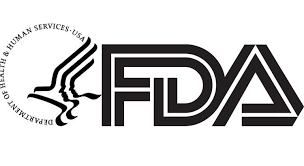 Abuse and Neglect Abuse and Neglect
The Food and Drug Administration last week banned electrical shock devices used to discourage behavior in people with disabilities. This comes after years of pressure from the disability community. Recently, the shock devices have been used by only one place in the U.S., the Judge Rotenberg Educational Center of Canton, Massachusetts, a residential school for people with autism and other psychiatric, developmental or mental disabilities. Recently Democratic Senators wrote a letter to the FDA Commissioner asking to immediately end the use of electrical stimulation devices (ESDs) on children and adults with disabilities. The rule was first proposed on April 25, 2016. In the fall of 2018, and again in 2019, the FDA announced they intended to finalize the rule by December 2019.
Plain Language:
- The government is ending the abuse of people with disabilities using electric shocks.
What this means to you:
- ESDs - which attach to the skin and allow another person to administer electric shocks - were allowed to be used as a form of punishment and behavioral control.
Action Steps:
- Read the FDA Announcement.
- Read the Democratic Senator's press release.
- Read AUCD's position.
- Share your concerns with the FDA.
- Thank your Members of Congress for their support: United States Capitol switchboard: (202) 224-3121
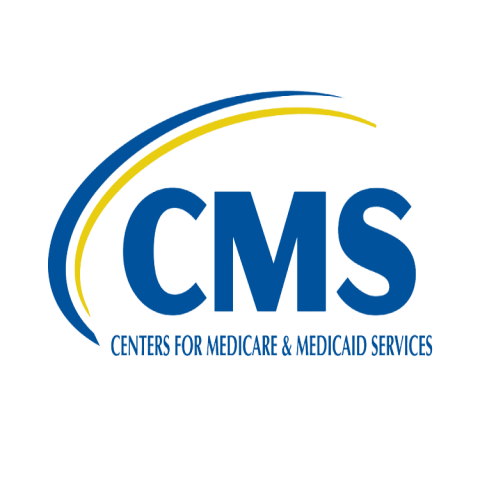 Medicaid Medicaid
A bipartisan group of House lawmakers -- Reps. Buddy Carter (R-GA), Tony Cardenas (D-CA), Tom Graves (R-GA) and Sanford Bishop (D-GA) - is urging the Centers for Medicare and Medicaid Services (CMS) to delay any decisions to weaken the requirement that states provide non-emergency medical transportation (NEMT) to Medicaid beneficiaries. Last year's spending legislation required Congress review the issue prior to regulatory action. The lawmakers note in the letter that CMS's fall 2019 regulatory agenda pushed up the date of a rule that is widely expected to roll back the regulatory requirement for NEMT, from December 2021 to this upcoming December. The fall 2019 regulatory agenda also indicated that CMS plans to release a Request for Information asking about the necessity of NEMT benefits in Medicaid. The lawmakers are the original cosponsors of the Protecting Patients Transportation to Care Act (H.R. 3935) - a bill that would codify a longstanding regulation that requires state Medicaid agencies to cover NEMT.
Plain Language:
- Members of Congress are asking the part of government that works on Medicaid to slow down on regulations on providing transportation for people with disabilities for medical non-emergency visits.
What this means to you:
- The lawmakers noted that the benefit is used by 7% of beneficiaries but accounts for less than 1% of total Medicaid spending.
Actions Steps:
- Contact your Members of Congress for their support: United States Capitol switchboard: (202) 224-3121
Out of State Care for Medicaid Eligible
The Center for Medicare & Medicaid Services (CMS) has an open request for information (RFI) on coordinating care from out-of-state providers for Medicaid-eligible children with medically complex conditions. Through the RFI, CMS wants to:
- identify best practices for using out-of-state providers to provide care for children with medically complex conditions
- determine how care is coordinated for this population of children
- reduce barriers that prevent children from receiving care from out-of-state providers in a timely manner
- identify processes for screening and enrolling out-of-state providers, including streamlining such processes.
CMS will use the information received to issue guidance to state Medicaid directors on the coordination of care from out-of-state providers for these children, which is required under the ACE Kids Act. Comment will be accepted for 60 days.
Plain Language:
- The government wants to hear from you about how children with disabilities visit doctors not in the state they live in.
What this means to you:
- This is an opportunity for you to share your story on care coordination, research, and best practice.
Action Step:
Accelerating Kids' Access to Care Act
Reps. Joe Kennedy (MA-D), Ben Ray Luján (NM-R), and Jaime Herrera Beutler (WA-R) introduced the Accelerating Kids' Access to Care Act (HR 5900). This bill would create a limited pathway for pediatric providers to be screened and enrolled in another state's Medicaid program.
Plain Language:
- The bill would make it easier for doctors and other providers to get paid by Medicaid.
What this means to you:
- This is an opportunity for you to share your story about how the limits of Medicaid coverage out of state impact children with disabilities.
Action Step:
- Contact your Members of Congress for their support: United States Capitol switchboard: (202) 224-3121
Campaign 2020

In the past week, Senators Amy Klobuchar and Elizabeth Warren and Former Mayor Mike Bloomberg dropped out of the Democratic presidential race. Presidential candidates have various policy plans that impact the disability community. Some have specific disability plans, while others have disability embedded throughout other plans. Stay informed with each. What's in it? What's not? What could this mean to you?
Democratic Candidates:
Former Vice President Joe Biden
Senator Bernie Sanders of Vermont
Rep. Tulsi Gabbard of Hawaii
Republican Candidates:
President Donald Trump
Businessman Rocky De La Fuente
Former Governor Bill Weld of Massachusetts
This week, 6 more states hold primaries:
- Idaho
- Michigan
- Mississippi
- Missouri
- North Dakota
- Washington
Though the field is narrowing, we need to continue to support people with disabilities, families and supporters to get out the disability vote.
Action Step:
 Disability Policy Seminar Disability Policy Seminar
Registration will be closing soon for the Disability Policy Seminar and the AUCD Emerging Leaders Policy Forum! Learn more information about the events.
You do need to register for both events if you plan to attend the Sunday AUCD Policy Forum before DPS.
Already registered? Here's where you can find AUCD at DPS:
- Monday, March 23 - 12:30-2:30 - AUCD Public Policy Committee Meeting (All are welcome! Snacks provided. Bring your own lunch!)
- Tuesday, March 24- 12:30-2 - State Caucus Lunch - This is an opportunity to meet with people from your state and plan your visits to Capital Hill. Often AUCD network members have scheduled separate times not with your other state organizations. You are encouraged to plan for your Hill meetings however is best for your group. So, you do not need to attend your caucus lunch if you need to plan separately. The AUCD Policy Team will be present to answer any questions you have during this time
- Wednesday, March 25 - All day - Hill Visits with you!
- Schedule your meetings with your Members of Congress! Tell us who you are scheduled to meet with for your Hill visits. Let us know your plans by completing this survey: https://www.surveymonkey.com/r/RC6GHCZ
AUCD Policy Talk
As we celebrate Developmental Disabilities Awareness Month, #AUCDPolicyTalk will be featuring a blog series from individuals with ID/DD about the terms advocate and self-advocate. Join us in starting off this series with our very own Liz Weintraub! #DDawareness2020 https://bit.ly/3cE8kjq
Action Steps:
 Love Policy? We do too! Love Policy? We do too!
Check out AUCD's new policy resource, a one-page fact sheet to help explain AUCD's policy efforts, and engage with us today!
AUCD Disability Policy Fellowship
Applications are open for the full year (June 2020-May 2021) AUCD Disability Policy Fellowship. Persons with disabilities or family members, and persons from culturally diverse backgrounds are encouraged to apply.
|
